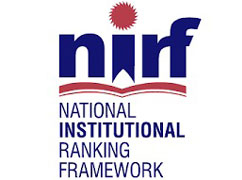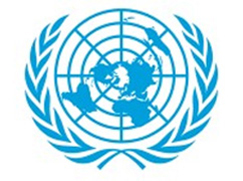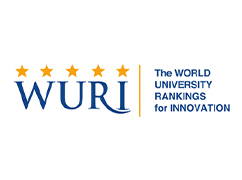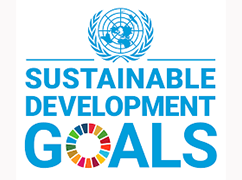At the SDG Cell of CHRIST(Deemed to be University), we are committed to catalyzing change that matters. Our mission is to foster a community that not only understands the significance of the SDGs but actively contributes to their achievement. Through diverse initiatives, engaging events, and purposeful partnerships, we empower individuals to become agents of sustainable transformation. Together, we’re rewriting the story of our future – one goal, one action at a time. Join us and be a part of this incredible movement towards a better world.
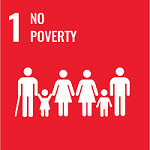
The goal of SDG 1 is to ensure that everyone has access to basic resources, opportunities, and social protection systems, with the ultimate aim of eradicating extreme poverty. This entails addressing hunger, providing universal access to healthcare and education, fostering sustainable economic growth, and empowering vulnerable populations. The creation of employment opportunities, strengthening social safety nets, investment in infrastructure, and promotion of fair trade practices are factors that aid in meeting the said goal.
Efforts to combat poverty must also address the underlying causes of inequality, including gender and income disparities. Empowering women and marginalised groups, ensuring equal access to resources and opportunities, and fostering social cohesion are fundamental elements of SDG 1.
By comprehensively and sustainably addressing poverty, SDG 1 envisions a world where everyone can enjoy a decent standard of living, economic opportunities, and social well-being. Achieving this goal will not only improve the lives of individuals but also contribute to a more equitable and prosperous global society.
Activities
Eradicating Poverty, Elevating Lives Aims to end extreme poverty and ensure all people have access to basic resources, social protection, and opportunities for sustainable livelihoods.
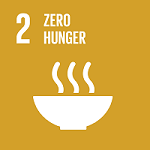
SDG 2 tackles the urgent issues of hunger, food security, nutrition, and sustainable agriculture. Its primary focus is to ensure that everyone, particularly the most vulnerable, has year-round access to sufficient, safe, and nutritious food.
This goal recognizes the profound challenges of global hunger and malnutrition and emphasizes the need for immediate action. It advocates for sustainable farming practices that boost productivity, preserve biodiversity, and safeguard ecosystems. Furthermore, SDG 2 emphasizes empowering small-scale farmers, enhancing rural infrastructure, and facilitating access to markets and resources.
SDG 2 is a comprehensive approach that addresses the interconnected nature of poverty, health, and environmental sustainability. It acknowledges the vital role of a healthy and sustainable food system in promoting human well-being and securing the planet's future.
Progress towards SDG 2 carries wide-ranging benefits, such as poverty alleviation, improved health outcomes, and increased resilience to climate change. However, persistent challenges like population growth, climate change, and conflicts continue to threaten food security.
Overcoming these obstacles requires innovative solutions, policy coherence, and substantial investments in agriculture and rural development.By making steps towards meeting SDG 2, we can create a future where nutritious food is accessible to all, and our agricultural practices safeguard both people and the planet.
Activities :
Nourishing Communities, Ending Hunger
Focuses on achieving food security, improved nutrition, and promoting sustainable agriculture to ensure that everyone has access to nutritious and sufficient food.
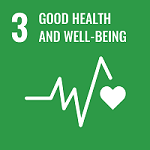
SDG 3 centers on the goal of ensuring healthy lives and promoting well-being for people of all ages. Recognizing that good health goes beyond mere absence of illness, SDG 3 acknowledges the fundamental role it plays in human development and overall happiness.
The objective of SDG 3 is to tackle major health challenges on a global scale. It encompasses reducing maternal and child mortality rates, combating communicable diseases, and providing universal access to essential healthcare services. Furthermore, it emphasises the significance of mental health and well-being, strengthening healthcare systems, and ensuring affordable and quality medicines are accessible to everyone.
Investments in healthcare infrastructure, research, and technology are vital for the development of effective interventions and improved healthcare delivery. Moreover, addressing social determinants of health like poverty, education, and gender equality is pivotal in fostering sustainable and equitable health outcomes.
By prioritising SDG 3, societies not only save lives and enhance the well-being of individuals and communities, but also stimulate economic growth and reduce inequalities. Adopting a comprehensive approach to health and well-being sets the stage for a healthier and more sustainable future for all.
Activities :
2021:
Healthy Lives, Thriving Futures
Aims to ensure healthy lives and promote well-being for all ages by addressing major health issues, improving healthcare access, and reducing the burden of diseases.
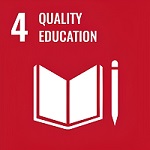
SDG 4 aims to ensure that every individual has access to quality education and lifelong learning opportunities. It recognizes education as a fundamental human right and a powerful tool for fighting poverty, promoting inclusion, and fostering sustainable development.
The goal is concerned with making education accessible to everyone, from early childhood to higher education. It places special emphasis on achieving gender equality in education, ensuring that both girls and boys have equal opportunities to learn. It also recognizes the importance of equipping people with the skills they need for employment and entrepreneurship, ensuring they are prepared for the challenges of the future.
Creation of inclusive learning environments that accommodate diverse needs and developing curricula that are relevant and responsive to real-world demands will aid in meeting this goal.
By achieving SDG 4, societies can enjoy a range of benefits. Education not only empowers individuals to reach their full potential but also contributes to poverty reduction, improved health, increased productivity, and stronger social bonds.
Activities:
2021:
Empowering Minds, Enriching Futures
seeks to provide inclusive and equitable quality education for all, promoting lifelong learning opportunities and fostering skills necessary for personal and societal development.
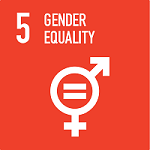
This goal is concerned with achieving gender equality and empowering women and girls worldwide. Recognizing gender equality as a fundamental human right and a prerequisite for a peaceful, prosperous, and sustainable world, SDG 5 addresses various crucial objectives.
These objectives encompass ending discrimination and violence against women and girls, eradicating harmful practices such as child marriage and female genital mutilation, promoting women's active participation in decision-making processes, and ensuring universal access to sexual and reproductive health and rights.
Attaining SDG 5 necessitates profound transformations in societal attitudes, legal frameworks, and institutions to foster gender equality and empower women and girls. This entails dismantling systemic barriers that perpetuate gender-based discrimination and violence, promoting equal opportunities in education and employment, and challenging harmful gender stereotypes.
The progress made towards SDG 5 holds immense potential for positive, far-reaching impacts. Not only does empowering women and girls benefit them individually, but it also enhances the well-being of families, communities, and societies at large.
Activities:
Panel Discussion- Women's Day
Activities :
2022:
Empowering All, Balancing Equally
Strives to achieve gender equality and empower all women and girls, addressing discrimination, violence, and unequal access to opportunities.
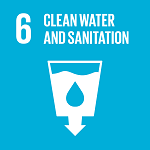
SDG 6 focuses on ensuring universal access to clean water and sanitation facilities worldwide. This goal addresses the immense challenges faced by millions of people who still lack these basic necessities.
By implementing efficient water management systems, sustainable water use, and improved sanitation practices, the goal plays a crucial role in promoting health, hygiene, and overall well-being. Additionally, SDG 6 aims to protect and restore water-related ecosystems, acknowledging their essential role in creating a sustainable future for humans and the planet.
It strives to make water and sanitation available to all and sustainably manage the same. Some of its objectives include achieving universal access to safe and affordable drinking water, providing adequate sanitation facilities for all, improving water quality and efficiency, along with strengthening water governance and cooperation.
By addressing these objectives, SDG 6 promotes sustainable development and reduces water-related issues globally. Access to clean water and sanitation is of paramount importance for sustainable development.
Activities :
2021:
2022:
2023:
Powering Progress, Energizing Change
Aims to ensure affordable, reliable, sustainable, and modern energy for all, while promoting renewable energy sources and efficient energy use.
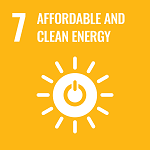
SDG 7 aims to ensure access to affordable, reliable, sustainable, and modern energy for all. It highlights the importance of renewable energy sources and efficiency in addressing climate change and promoting economic growth.
By investing in clean energy technologies, developing countries can reduce air pollution, improve energy security, and create new job opportunities. Its targets include increasing the share of renewable energy in the global energy mix, and enhancing energy efficiency, while also aiming to expand access to electricity in developing countries.
The goal also focuses on improving the sustainability and resilience of energy infrastructure while promoting clean cooking solutions. Achieving SDG 7 is crucial for tackling climate change, reducing air pollution, and improving healthcare outcomes, especially in remote and underserved communities.
Additionally, affordable and clean energy is imperative for advancing other SDGs, such as poverty eradication, education, and gender equality. Access to clean energy is vital for economic growth, poverty eradication, and improving the quality of people's lives. These energy sources can help address climate change issues.
Affordable energy promotes industrialization, innovation, and the development of infrastructure. Therefore, clean energy is essential to meet other Sustainable Development Goals, from combating poverty and hunger to fostering sustainable cities and communities.
Activities
2022:
Powering Progress, Energizing Change
Aims to ensure affordable, reliable, sustainable, and modern energy for all, while promoting renewable energy sources and efficient energy use.
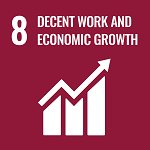
SDG 8 promotes inclusive and sustainable economic growth, full and productive employment, and decent work for everyone. It emphasises the need to generate more jobs, especially for women, youth, and those in marginalised communities, while improving working conditions and ensuring equal pay.
Additionally, it focuses on enhancing entrepreneurship, fostering innovation, and encouraging the growth of small and medium-sized enterprises. SDG 8 aims to eradicate poverty and unemployment, reduce inequality, and build resilient economies that can withstand global shocks. It emphasises the importance of access to quality education and vocational training.
Activities:
Boot Camp- India Sustainability Startathon 2023
World Youth Skills Day- In campus session
Activities
2022:
Prosperity Through Opportunity
Seeks to promote sustained, inclusive, and sustainable economic growth, full and productive employment, and decent work for all.
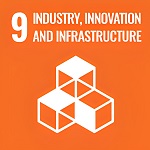
SDG 9 embodies the critical components necessary for sustainable economic growth and development. It emphasises the importance of industry, innovation, and infrastructure.
By promoting sustainable industrial growth and implementing effective infrastructure systems, SDG 9 targets economic diversification, job creation, and increased productivity, ultimately advancing sustainable development and improving livelihoods worldwide. Sustainable supply chain practices, fostering cooperation between the public and private sectors, and encouraging green entrepreneurship are essential for achieving sustainable industrialization.
SDG 9, strives to build resilient infrastructure, promote inclusive and sustainable industrialization, foster innovation, and highlight the role that technology plays in achieving these objectives
Activities
Innovating Pathways, Building Progress
Focuses on building resilient infrastructure, promoting inclusive and sustainable industrialization, and fostering innovation.
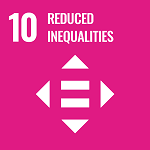
SDG 10 addresses income inequality, social disparities, discrimination, and exclusion persistent in societies worldwide. Efforts to reduce inequalities include implementing progressive taxation systems, strengthening social protection policies, promoting fair employment opportunities, fostering inclusion, and ensuring equal access to basic services such as education, healthcare, and affordable housing.
Effectively addressing and overcoming inequalities poses significant challenges. Obstacles include inadequate access to resources and opportunities, socioeconomic disparities, political and institutional barriers, and deeply ingrained societal norms and biases.
Furthermore, the interplay between various forms of inequality, such as gender, race, and class disparities, adds complexity to the issue. These obstacles require comprehensive and multi-faceted approaches that address the root causes, dismantle structural barriers, and promote inclusivity and equality.
Activities:
Panel discussion- Women’s Day
Activities
2022:
Breaking Barriers, Bridging Gaps
Aims to reduce inequalities within and among countries, addressing income inequality, social exclusion, and promoting social, economic, and political inclusion.
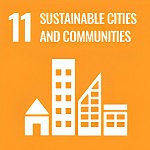
SDG 11 focuses on creating sustainable cities and communities. By prioritising sustainability in urban planning, cities can enhance their resilience, improve living conditions, and ensure a brighter future for generations to come.
Sustainable urbanisation plays a significant role in environmental preservation, economic growth, and social equity. Cities can reduce their ecological footprint and mitigate climate change. Sustainable urbanisation promotes inclusive and safe urban spaces, providing access to quality housing, healthcare, and education for citizens.
Activities
2022:
Urban Harmony, Sustainable Horizons
Focuses on creating inclusive, safe, resilient, and sustainable cities and communities by improving urban planning, infrastructure, and access to basic services.
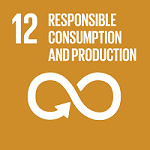
Climate change, biodiversity loss, and pollution together make the triple planetary crises. The root cause of these planetary crises is unsustainable consumption and production patterns. The global reliance on natural resources is steadily rising: it has increased by over 65% globally from 2000 to 2019.
Too much food is being lost or wasted in every country every day. During food production, which includes harvesting, transport, storage, and processing, 13.3% of the world’s food is lost after harvesting and before reaching the retail market. During consumption, which includes several levels, such as houses, grocery stores, restaurants, and households, 17% of total food is wasted at the consumer level.
Estimations show that most of the world’s electronic waste is not being safely managed. In e-waste collection rates, only 1.2% is collected in Latin America and the Caribbean, 1.6% in sub-Saharan Africa, and 46.9% in Europe and North America. Therefore, 22.8% of e-waste is collected on a global level. Multiple targets and indicators have been placed that are being implemented to ensure this 12th SDG goal.
Activities
Consume Wisely, Produce Sustainably
Encourages sustainable consumption and production patterns by promoting efficient use of resources, reducing waste, and minimizing environmental impacts.
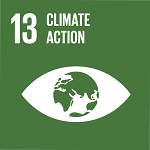
Take urgent action to combat climate change and its impacts.Climate change is humanity’s “code red” warning, and our window to combat and avoid climate catastrophe is closing rapidly. In a few years, at a 1.5 C scenario, 70%-90% of coral reefs will be gone, and at a 2 C scenario, coral reefs will die off completely.
Sea level will rise 30-60 cm by 2100. It has also been estimated that droughts will displace 700 Million people by 2030, and other medium-to-large-scale disasters will increase by 40% from 2015 to 2030.
Energy-related CO2 emissions increased by 6% in 2021, reaching the highest level ever. Climate finance falls short of 600 Billion dollars yearly collected. The rising global temperatures continue unabated leading to more extreme weather.
Activities:
World Environment Day- Sapling plantation drive
World Earth Day- Activities for students and faculties
Activities
Unite for Climate, Act for Tomorrow
Calls for urgent action to combat climate change and its impacts. It emphasizes adaptation, mitigation, and raising awareness to address the global climate crisis.
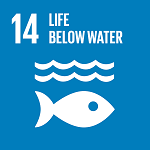
Conserve and sustainably use the oceans, seas, and marine resources for sustainable growth. Earth's largest ecosystem, our oceans, are endangered. Overfishing, acidification, eutrophication, and ocean warming are some of the biggest threats oceans face. Plastic pollution is choking the ocean. This is because 17+ million metric tons of plastic entered the ocean in 2021, and it is projected to double or triple by 2040.
Increasing acidification is threatening marine life and limiting the ocean’s capacity to moderate climate change, which was done by the ability of the ocean to absorb 1/4th of global annual co2 emissions.
Other than this, 90% of the world’s fishermen are employed in small-scale fisheries that need accelerated support due to the pandemic. To ensure this 14th SDG goal, multiple targets and indicators have been placed that are being implemented.
Activities
Preserving Seas, Nurturing Life
Aims to conserve and sustainably use marine resources, protect marine ecosystems, and prevent marine pollution to ensure the health of oceans and aquatic life.
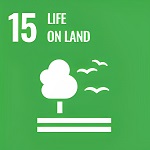
Protect, restore, and promote sustainable use of terrestrial ecosystems, sustainably manage forests, combat desertification, halt and reverse land degradation and halt biodiversity loss.
It has been recorded that ten million hectares of forest area are destroyed every year. Almost 90 % of global deforestation is due to agricultural expansion, which includes 49.6% due to cropland expansion and 38.5% due to livestock grazing.
Biodiversity was largely neglected during the pandemic as the majority of the funding was directed towards covid-19 recovery spending, which requires it to be brought to attention. Around 40,000 species are documented to be at risk of extinction over the coming decades. Only 133 parties have ratified the Nagoya protocol, which addresses access to genetic resources and their fair and equitable use.
Only half of the freshwater, terrestrial, and mountain key biodiversity areas are protected. Multiple targets and indicators have been set up and are being used to assure the achievement of the fifteenth SDG.
Activities
2022:
Guardians of Earth, Keepers of Life
Focuses on protecting, restoring, and promoting sustainable use of terrestrial ecosystems, managing forests sustainably, combating desertification, and halting biodiversity loss.
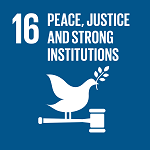
Promote peaceful and inclusive societies for sustainable development, provide access to justice for all, and build effective, accountable, and inclusive institutions at all levels.
Peace and inclusivity seem to be a far cry for huge sections of the world’s people. Pleas for global peace grow louder as the world witnesses the largest number of violent conflicts since 1946, and a quarter of the global population lives in conflict-affected areas.
One-third of the world’s population, mostly women, are afraid to walk alone in their neighbourhoods at night. Around 100 Million people have been forcibly displaced from their homes worldwide as of May 2022 due to various reasons. The global homicides rate may have declined by 5.2% between 2015 and 2022, yet fall short of the “significant reduction” by 2030 targeted in the SDGs.
Corruption is rampant in every part of the world. It has been measured that almost 1 in 6 businesses have received bribe requests from public officials. These issues must be overcome to bring about the 16th SDG goal.
Activities:
World Humanitarian Day- Open Mic
Activities
2022:
Peaceful Paths, Just Societies
Aims to promote peaceful and inclusive societies, provide access to justice for all, and build effective, accountable, and inclusive institutions at all levels.
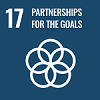
Strengthen the means of implementation and revitalize the Global Partnership for Sustainable Development.The means of implementation and revitalising global partnerships must be a necessity for sustainable development. The rising debt burden threatens developing countries’ pandemic recovery.
This has increased as inferred from the debt to GNI (Growth National Product) ratio rising sharply in sub-Saharan African countries from 23.4% in 2011 to 43.7% in 2020. It is seen that the ODA (for SDG data declined by more than 18% in 2020. Internet uptake accelerated during the pandemic as the percentage of individuals using the Internet rose from 54% in 2019 to 63% in 2021.
It was recorded in 2021 that net ODA reached a new high of $177.6 billion, largely due to covid related aid; foreign direct investment rebounded to $1.58 trillion up 64% from 2020, and remittances reached $605 billion which was up 8.6% from 2020.
This was the sustainable development report as of 2021. Numerous targets and indicators have been set up and are being used to assure the achievement of the 17th SDG.
Activities
2022:
Together for Impact, Partnerships That Thrive
Emphasizes the importance of global partnerships and collaboration to achieve all the SDGs. It focuses on enhancing capacity-building, technology transfer, and sustainable development financing.
Address
Dharmaram College Post, Hosur Road, Bengaluru – 560029, Karnataka, India
Telephone
+91 804012 9100 / 9600
Send us a Fax
40129000
Mail Us At
mail@christuniversity.in


